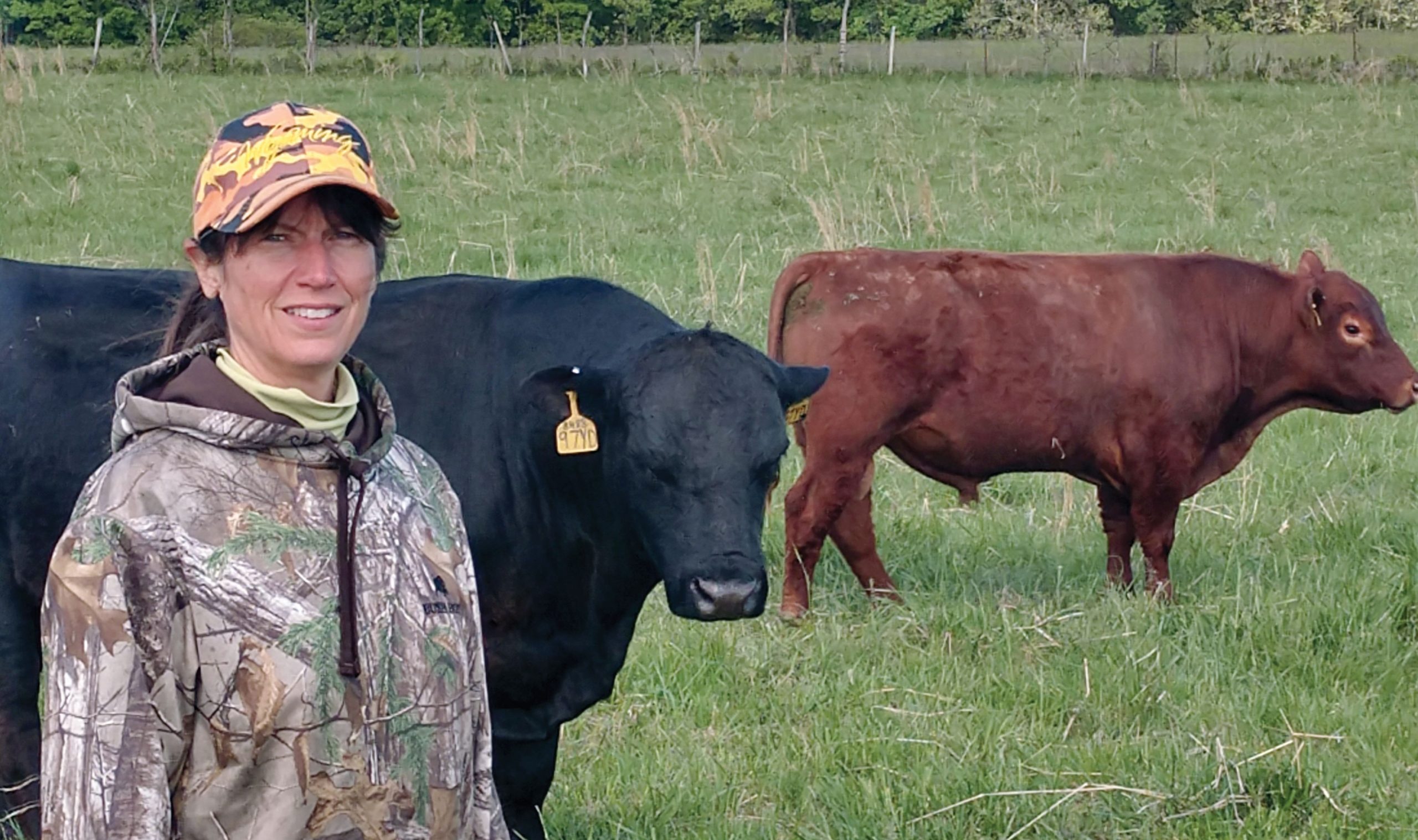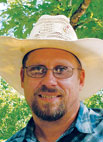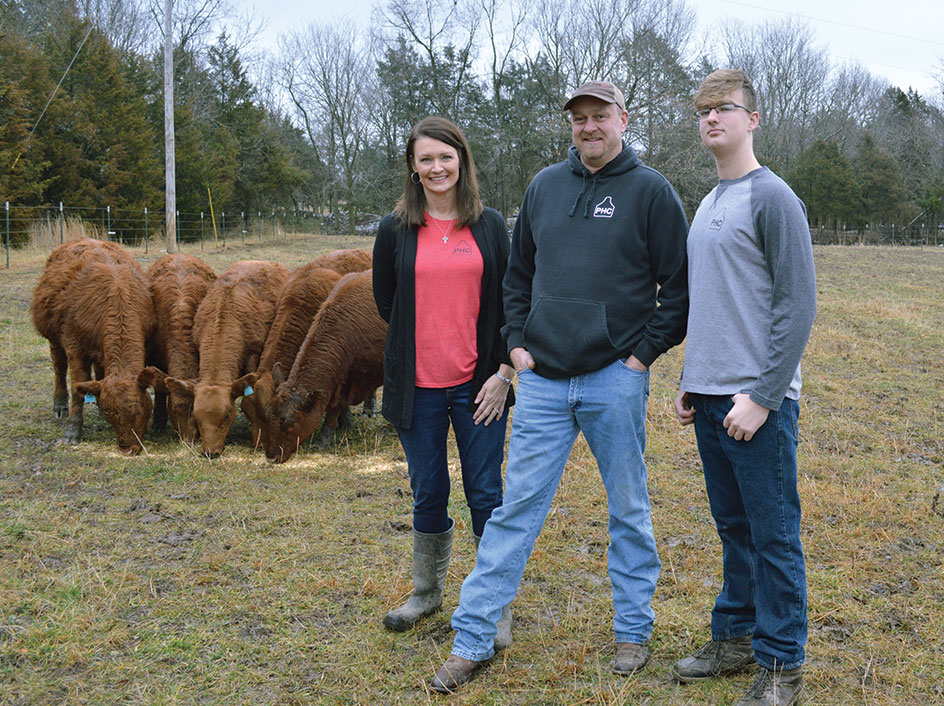
Regina Scharff brings the skills and knowledge she acquired from her NRCS position to her own farm
Former Natural Resource Conservation Service resource conservationist Regina Scharff is busy operating three different LLCs in Cedar County, outside Dunnegan, Mo., along with her husband Ervin.
“We have Replacement Genetics, our cattle business, which includes our black Angus, Herefords and Red Angus. We currently have 50 registered black Angus and 10 registered Herefords,” Regina explained. “In addition, we also run some commercial cows, which includes a few Red Angus bulls that we use for our rental and contract grazing.”
The couple owns about 110 acres and rents another 300, for a total of five different farms within a 10-mile radius.
They sell seedstock, as well as beef off their farm.
“The name Replacement Genetics means just that, our customers need to replace their genetics with our breeding stock, grass-fed genetics for a more profitable bottom line.”
They prefer natural cover in their breeding program, using their own bulls for adaptability.
“Ours are not the ones that bring braggin’ rights down at the coffee shop, as in ‘my new calf came in at such and such a weight,’ but rather ours are the ones that are going to increase your bottom line,” Regina said. “Our genetics are ideal for easy keeping, making for low input animals and there is a difference.”
They also prefer not to utilize chemical dewormers or other medications “until it’s down to a matter of life and death.”
Animals requiring treatment are culled.
In addition to their own cattle operation, they are also contract grazers.
“With our contract grazing, we take care of other people’s cattle, including cow/calf pairs and stockers. We charge a daily rate to graze them, doing it on an annual basis, depending upon what we have available,” Regina said. “We’ve had up to 400 cow/calf pairs in a single year.”
To help manage their own cattle and those of their grazing customers, Regina taps back into the knowledge she acquired regarding the advantages of rotational grazing.
“We have a total of 80 paddocks, spread out over the different farms,” she explained. “I used to move cattle from one farm to the other on horseback. Now that was fun, doing a cattle drive in this day and age.” We do a bit of custom beef but for the most part, our bulls and cows don’t even know what a bucket of grain is.”
Regina’s husband Ervin operates his own trucking business, and they also run a brokering business, loading cattle into trucks, taking the livestock from the stockyards to the feedlots and ranchers.
Regina’s farm is also home to 20 commercial goats that they raise, use, and sell for brush control. They also raise chickens to add nutrients to their pastures.
“We have about 40 chickens right now. We are working to set up our portable hen houses in the pasture and then we’re planning on adding up to 500 chickens this summer,” Regina said. “We get Hy-Line Browns from one of the egg layer operations. They are free-range, organic chickens and after a year of egg production they let them go. They are great foragers out there in the pasture so we don’t have to feed them at all and we get an egg a day per chicken, so yes, we also sell eggs.”
For Regina, who grew up on a dairy farm in Wisconsin, working with cattle is second nature and she chose to continue in agriculture.
Her children have chosen a variety of different careers. Her oldest daughter Hannah, along with her, husband Jack and their 4-year old daughter Ella live in Ash Grove and have a farm in Walnut Grove, following in Regina’s footsteps. Ella is anxiously waiting for a new brother or sister who will be arriving a little later this year.
Regina’s younger daughter Rachel has chosen a different road, while still following a well-known Ozarks’ tradition, working in the shows at Branson.
Her son Aaron attends Missouri State University in Springfield, studying computer science, and son Jason is still at home and will be a high school senior this fall.







